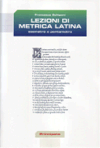New Fluency, lo si è già detto nei primissimi post, è parente stretto del metodo Effortless English, da cui eredita principalmente l'importanza assegnata alla ripetizione e all'ascolto.
Ecco, in estrema sintesi, in che cosa consiste il metodo messo a punto da A.J. Hoge: ascoltare (listening) ripetutamente (repetition), per almeno sette giorni consecutivi, frasi (phrases) semplici tratte dalla vita reale (authentic materials), brevi storie divertenti, interattive (mini stories) e narrate da diversi punti di vista (point of view stories) in modo da consentire l'acquisizione inconscia della grammatica (grammar).
Le proposte della settimana:
Do you need to speak about or understand mathematics or geometry in English? This lesson teaches you all the terminology you need to translate your mathematics knowledge into English. This video will be especially important for students who are studying in an English-speaking country, and for professionals who need to work with English speakers. I'll also explain the correct sentence structures we use to talk about common mathematical operations in English. For example: "One plus one equals two", "one and one is two", "if you add one and one, you get two", and many more. This lesson covers terminology about: operations (+ - * /), fractions, decimals, exponents, roots, shapes, measurements, angles, triangles, and much more. Don't let English stand in the way of your mathematics!
Learn these 10 phrasal verbs that are used in school, at work, and in everyday life. You'll learn expressions using the word "step" to talk about taking responsibility, doing things faster, taking a break, becoming a leader, leaving a job, and more. Step up to the plate and learn phrasal verbs -- they will make your English conversations much more interesting. You'll also be able to understand more of what native speakers say in person and in movies.
Opzionale: lettura di un testo inglese ad alta voce (dieci minuti ogni giorno).






Nessun commento:
Posta un commento